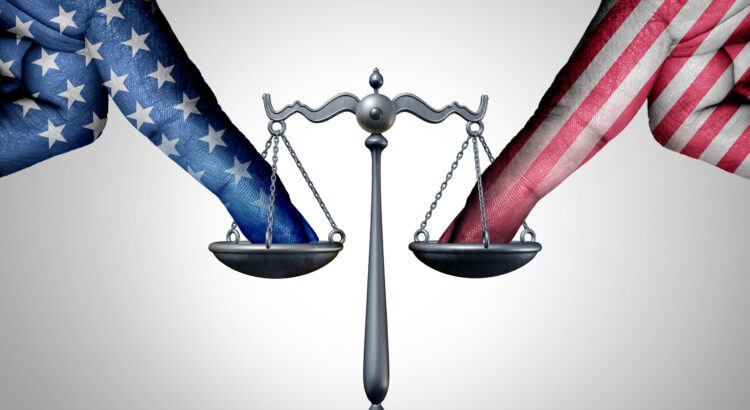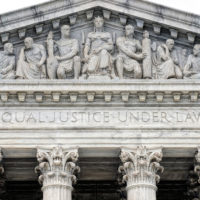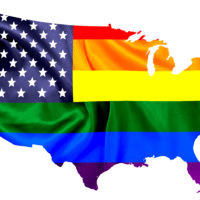
Will Obergefell survive the new Supreme Court?
This is the greatest concern / fear of many in the LGBTQ community. From the moment we learned of the heartbreaking death of Ruth Bader Ginsburg, this question became the most frequently asked by scholars, activists, lawyers and members of the LGBTQ community. What started as a hypothetical question became real on Monday, November 23, 2020.
What happened?
The Attorney General for the state of Indiana petitioned The Supreme Court in the case of Box v. Henderson, which poses the question, “Does a married same-sex parent have the same rights as a heterosexual married parent in regards to the presumption of parentage which attaches to marriage?” The presumption of parentage is the rule of law that creates a legal relationship between the spouse of a woman who gives birth to a child and the child to the spouse of the birth mother. How does this effect the Obergefell decision, which made marriage equality the law of the land in June of 2015? The answer to that question poses serious issues of equality and judicial conduct that we are just beginning to understand.
What did Obergefell say?
Will Obergefell survive the new Supreme Court? First, we need to understand exactly what Obergefell said. In the Obergefell decision, the court stated not only that all states must issue marriage licenses to same-sex couples, that other states must recognize same-sex marriage licenses and that same-sex couples are entitled to marriage, “on the same terms and conditions as opposite-sex couples.” That means that all protections, including the marital presumption of parentage, shall redound to same-sex married couples.
Judicial bias?
The arrival of Box v. Henderson at The. Supreme Court is questionable for a few reasons. First, the case was last heard in the 7th Circuit Court of Appeals, where a conservative three judge panel unanimously upheld the protections conferred in Obergefell to the 8 plaintiff married couples who are the heart of this case. But, they waited 3 years to issue an opinion. The average time between when this court hears a case and when it issues its decision is 3 months. If this case was handled in the normal time frame, it would have been before a Supreme Court that had already decided this issue twice before in favor of extending all marriage rights to same-sex couples. But now the court make-up is different, which leads me to the second issue that raises concern: the current Supreme Court requested that the Indiana Attorney General make the Writ of Certiorari, the petition to hear the case, directly. Why would a court that has twice decided an issue ask to rehear that same issue?
 The court first decided this issue in Obergefell, and then again in 2017 in the case, Pavan v. Smith. In Pavan, the court held that states must issue birth certificates to same-sex couples in the same manner they issue them to opposite-sex couples. This means that the presumption of parentage (once referred to as the presumption of paternity) would make the father of a child born to his wife, even if that child was conceived with donor sperm, the legal parent of that child. The 8 plaintiff couples in the Box case are asking the court to have the presumption apply to their marriages the same way it applies to heterosexual married couples, even when there is not a biological connection between the spouse of the mother and the child.
The court first decided this issue in Obergefell, and then again in 2017 in the case, Pavan v. Smith. In Pavan, the court held that states must issue birth certificates to same-sex couples in the same manner they issue them to opposite-sex couples. This means that the presumption of parentage (once referred to as the presumption of paternity) would make the father of a child born to his wife, even if that child was conceived with donor sperm, the legal parent of that child. The 8 plaintiff couples in the Box case are asking the court to have the presumption apply to their marriages the same way it applies to heterosexual married couples, even when there is not a biological connection between the spouse of the mother and the child.
To answer the question, “will Obergefell survive the new Supreme Court?”, we must look to the strained strategy of the Indiana Attorney General, Curtis Hill. Hill is falsely declaring that a state should have the ability to acknowledge the, “biological distinction between males and females.” He is inferring that because only a man and a woman can biologically have a child together, only an opposite-sex married couple should have the protections that the martial presumption of parentage applies. Furthermore, one plaintiff couple in the Box case includes a woman who donated her egg to her partner who then gave birth. Both parents are “related” to the child under the law.
States rights
This insidious “state’s rights” approach gives the new conservative majority on the Supreme Court, the ones who asked for this case to be heard in the first place, the ability to drive a wedge directly into the heart of marriage equality. If the conservative Supreme Court sides with Indiana in Box, it will allow other states the ability to make distinctions between same-sex marriage and opposite-sex marriage. It would mandate that same-sex parents go through a costly and invasive adoption process to secure their legal right as a family. What the court would fail to realize is that the children would be the victims of this strategy. Leaving a child in legal limbo only serves to create insecurity in that child’s family.
Will Obergefell survive the new Supreme Court? We will soon get a clue. The new Supreme Court recently heard the case of Fulton v. The City of Philadelphia, which asked whether, among other questions, the government violates the First Amendment by defining a religious agency’s ability to participate in the state sponsored foster-care system mandating the inclusion of same-sex couples as foster parents. This religious liberty approach to equality, I fear, will be the first sign of the new Supreme Court’s willingness to strip the rights of same-sex couples away.
What can we do?
If there is anything to learn from this potentially disturbing road that the court appears to be heading down, it is to fight at your local level to ensure that protections are in place and that equality in marriage is preserved. Do everything you can now to prepare for the worst: get your estate plan in place, petition for a step-parent adoption or birth order if your state allows and start telling all of your friends and family about what is going on. While we may have thought that battle was a thing of the past, we are still warriors. We have always had to fight to protect our relationships and families, we know how to do it.
Anthony M. Brown, Esq. – www.timeforfamilies.com November 28, 2020
The post Will Obergefell Survive The New Supreme Court? appeared first on Time For Families.
Source: Time for Families













